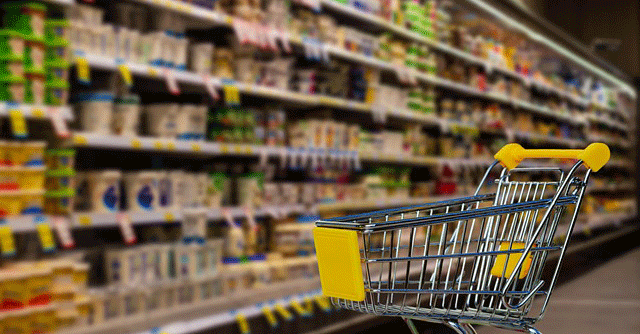
Electronics, apparel, FMCG help lead festive demand


Consumer product companies shrugged off the weak demand they experienced in September in the weeks leading up to Diwali and reported strong sales. Makers of home appliances, fast moving consumer products and apparel retailers said consumers shopped for these goods weeks prior to the main festivities of Diwali that was observed late October.
Electronics retailer Vijay Sales reported both volume as well value growth this festive season compared to a year ago period. Consumers bought large television sets, microwaves, mobile phones as well as laptops. Consumption was reported both at the premium as well as entry level of electronics and home appliances, said a top executive at the retail chain.
“Overall the festive season has been extremely good. We have seen a growth of nearly 15% in sales. After a long time, we’ve seen a growth in volumes as well at 10-11%. Only two categories -- air conditioners and refrigerators -- were flat primarily because of the weather. Except for these, all other categories have grown and have done very well,” said Nilesh Gupta, director, Vijay Sales.

Gupta said majority of consumers used the option of easy monthly installments even as companies doled out stronger promotions such as cash-backs and freebies.
Packaged foods company Parle Products reported a 6-7% jump in volumes this festive season. This was primarily due to people going all out and purchasing after two years of lockdown and subdued festivities, said Mayank Shah, senior category head, Parle Products.
“Consumers were in the mood to rejoice and we saw strong demand in numerous food categories that increased by 10-12% (value growth) in September-October compared to previous year October-November (like to like comparison of the Diwali period). Volume growth was about 6-7%,” he said.

To be sure, demand for consumer goods was muted as inflation impacted household budgets. Meanwhile, companies have been reeling under high raw material costs that are hurting their margins. However, this year the festive season was celebrated without pandemic-induced restrictions.
Last week, packaged consumer goods company Dabur India said it had amply stocked up its gifting portfolio of Real juices, honey and Chyawanprash in the days leading up to the festivities. “Inventory levels in the trade have gone up and the trade has been receptive to that inventory,” Mohit Malhotra, the company’s chief executive said in an interview.
Retail technology company Bizom that tracks sales of packaged goods within stores reported an uptick in consumption of sweets and savouries along with special festival food leading to a surge in commodity sales in the first 24 days of October. However, categories such as personal care and beverages reported a decline month-on-month i.e. between September to October.

“Festive food consumption and gifting has helped shore up sales for fast moving consumer (FMCG) products in the festival season. We’ve seen consumers exhibit revenge festivities which has helped drive FMCG sales up despite headwinds of inflation keeping their non-food discretionary spends relatively under control. We’ve seen stronger growth among urban consumers who definitely seemed to have a stronger urge to go out and celebrate compared to rural folks,” Bizom said in a note on festive season demand.
However, with the major festival season getting over, consumers will go back to controlled spending till inflation tempers down, Akshay D’Souza, chief of growth and insights at Bizom warned.
Early data from the Retailers’ Association of India (RAI) indicates an uptick in demand for apparel, electronics and footwear. “In the 10-15 days before Diwali, retailers have reported a 20-25% growth over 2019 levels. Garments have done well, jewelry has done okay. Sales of electronics items also picked up just before the festival. Some of the home items—they did not do as well,” sad Kumar Rajagopalan, CEO, RAI. Rajagopalan said a restriction-free Diwali aided better demand.

He however added that concerns around high inflation still persist. India’s retail inflation touched a five month high of 7.30% in September due to surging food prices, according to Reuters.
“Inflation is here to stay for some more time; this definitely impacts the consuming class of the population. We’ll have to see how November goes to get conclusive evidence on that,” he added.
